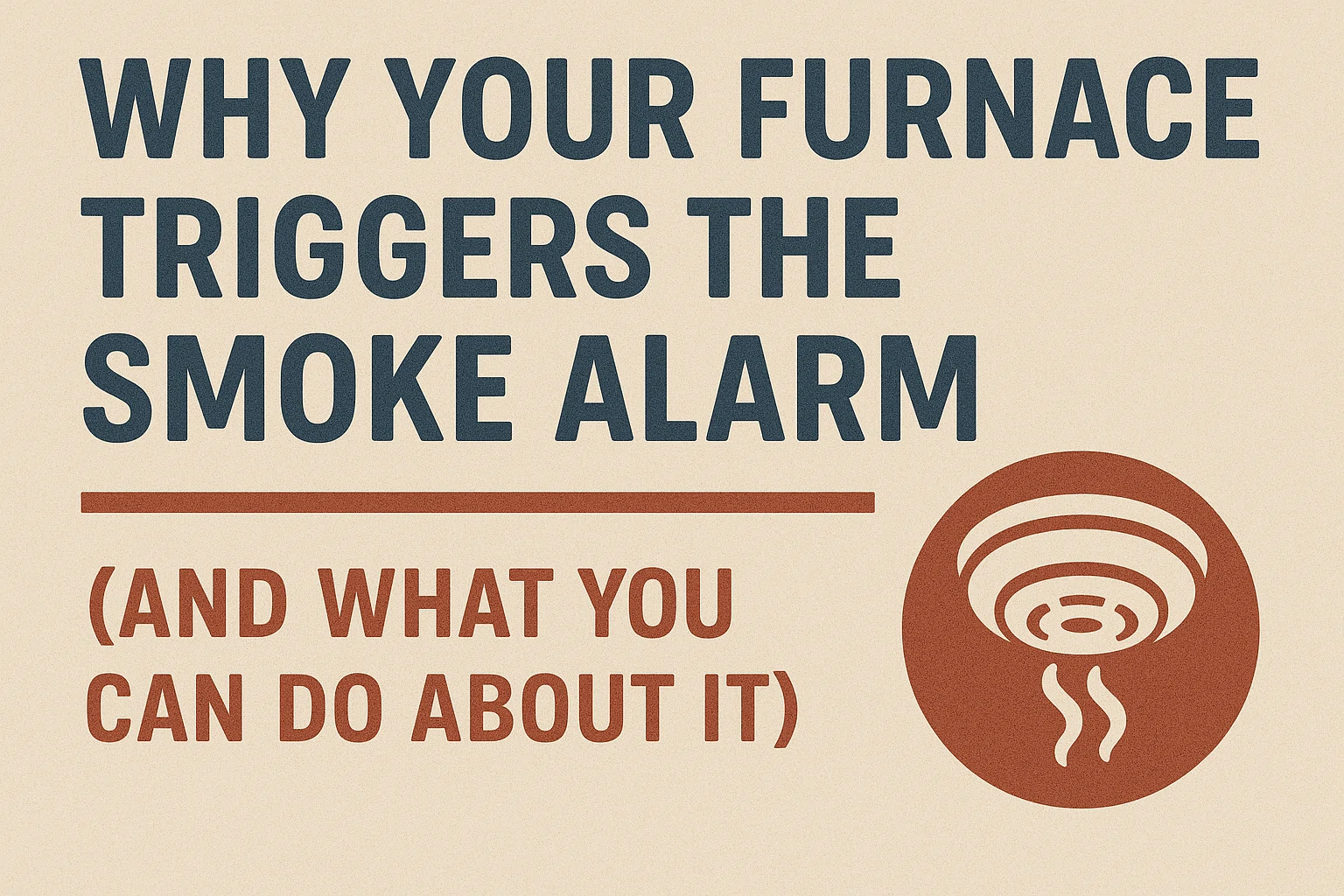When your smoke alarm goes off right after your furnace starts running, it can be alarming — literally. You might wonder if there’s a fire, a gas leak, or just a harmless puff of dust.
At Galaxy Heating & Air Conditioning, we get calls like this every winter from homeowners across the Bay Area, Tri-Valley, and Contra Costa County. In most cases, it’s not an emergency — but sometimes, it’s a warning sign you shouldn’t ignore.
Let’s break down why your furnace might trigger the smoke detector, what you should check, and when to call a professional HVAC technician.
🚨 Common Reasons a Furnace Triggers a Smoke Alarm
1. Dust Burning Off After Inactivity
This is the most common cause when turning on your furnace for the first time in the season.
During warmer months, dust and debris settle on the heat exchanger, burners, and ductwork. When the furnace kicks on, that dust burns off — releasing a brief, smoky odor that can trigger a sensitive smoke alarm.
What to do:
• Open windows for ventilation.
• Let the furnace run for 10–15 minutes.
• If the smell disappears and alarms stop, it’s likely harmless.
• Schedule a furnace tune-up next time before the heating season to avoid it.
2. Dirty Furnace Filters
Clogged or neglected air filters restrict airflow through your furnace. When that happens, the system overheats, and dust trapped in or near the filter may smolder — sometimes causing enough particulates in the air to set off a smoke detector.
Solution:
• Replace or clean your air filters every 1–3 months.
• During heavy use (winter), check them monthly.
• A clean filter also improves efficiency and indoor air quality.
3. Overheating Blower Motor or Electrical Components
If your blower motor, control board, or wiring connections are overheating, they can emit a faint burning smell. This could come from electrical insulation or plastic components heating up — enough to trigger a smoke alarm if near a return vent.
Warning signs:
• Burning plastic or electrical smell
• Furnace shutting down unexpectedly
• Smoke detector near the unit keeps tripping
What to do:
• Turn off the furnace immediately at the thermostat and breaker.
• Call a licensed HVAC technician — this could indicate an electrical hazard.
4. Blocked Vents or Return Air Grilles
When supply vents or return grilles are blocked by furniture or debris, the furnace can overheat due to poor airflow. That heat buildup may cause dust and insulation inside the ductwork to smolder slightly, creating airborne particles that set off the detector.
Check for:
• Closed or blocked vents
• Dusty return grilles
• Restricted airflow in one part of the house
Solution:
Keep all vents open and unobstructed, and vacuum return air grilles regularly.
5. Combustion or Flue Gas Problems
Gas furnaces produce combustion byproducts like carbon monoxide (CO) and soot. Normally, these are vented safely outdoors through the flue pipe.
However, if the flue is blocked, cracked, or improperly installed, those gases may escape into your home — and in some cases, trigger both smoke and carbon monoxide alarms.
Possible causes:
• Bird nest or debris in flue pipe
• Broken or disconnected venting
• Cracked heat exchanger
What to do immediately:
• Shut off the furnace.
• Evacuate if CO alarms are also sounding.
• Call emergency services, then a professional HVAC company to inspect your system.
Galaxy Heating & Air Conditioning offers full combustion safety and CO testing as part of our furnace inspections.
6. Residue from Paint, Cleaners, or Construction
If you recently remodeled or painted near your furnace, chemicals from paint fumes, cleaning sprays, or varnish can burn off when drawn into the return duct. This can trigger both odor and smoke detection.
Tip:
Avoid using strong chemicals or aerosols near air returns or mechanical rooms. Allow time for fumes to dissipate before running your system.
🧰 How to Prevent Furnace-Related Smoke Alarm Triggers
To prevent false alarms (and potential hazards), follow these simple maintenance steps:
• Schedule annual furnace maintenance each fall.
• Replace air filters regularly.
• Keep vents, ducts, and air returns clean.
• Install smoke detectors 10–20 feet away from HVAC appliances to prevent false triggers.
• Have your heat exchanger, burners, and flue system inspected for cracks or blockages.
• Consider upgrading to a heat pump system for all-electric, emission-free comfort — ideal for Bay Area homes.
⚡ When It’s More Than Just Dust
If your smoke alarm keeps going off after multiple furnace cycles, or you notice a persistent burning smell, don’t ignore it.
It could mean:
• The system is overheating
• There’s an electrical short
• Your heat exchanger or wiring is failing
In these cases, shut the system off and call Galaxy Heating & Air Conditioning for professional diagnosis. Our technicians are Diamond Certified, BBB A+ rated, and trained to identify both mechanical and safety-related issues quickly.
🌟 Choose the Bay Area’s Trusted Heating Experts
Whether your smoke alarm is caused by dust, electrical issues, or venting problems, our licensed HVAC professionals will ensure your system is safe, efficient, and compliant with all California building codes.
Galaxy Heating & Air Conditioning proudly serves:
Pleasant Hill • Walnut Creek • Concord • San Ramon • Danville • Dublin • Livermore • Alamo • Castro Valley • Tri-Valley and beyond.
📞 Call us today at (925) 578-3293
or visit GalaxyServices.com to schedule your furnace safety inspection or heating tune-up.
